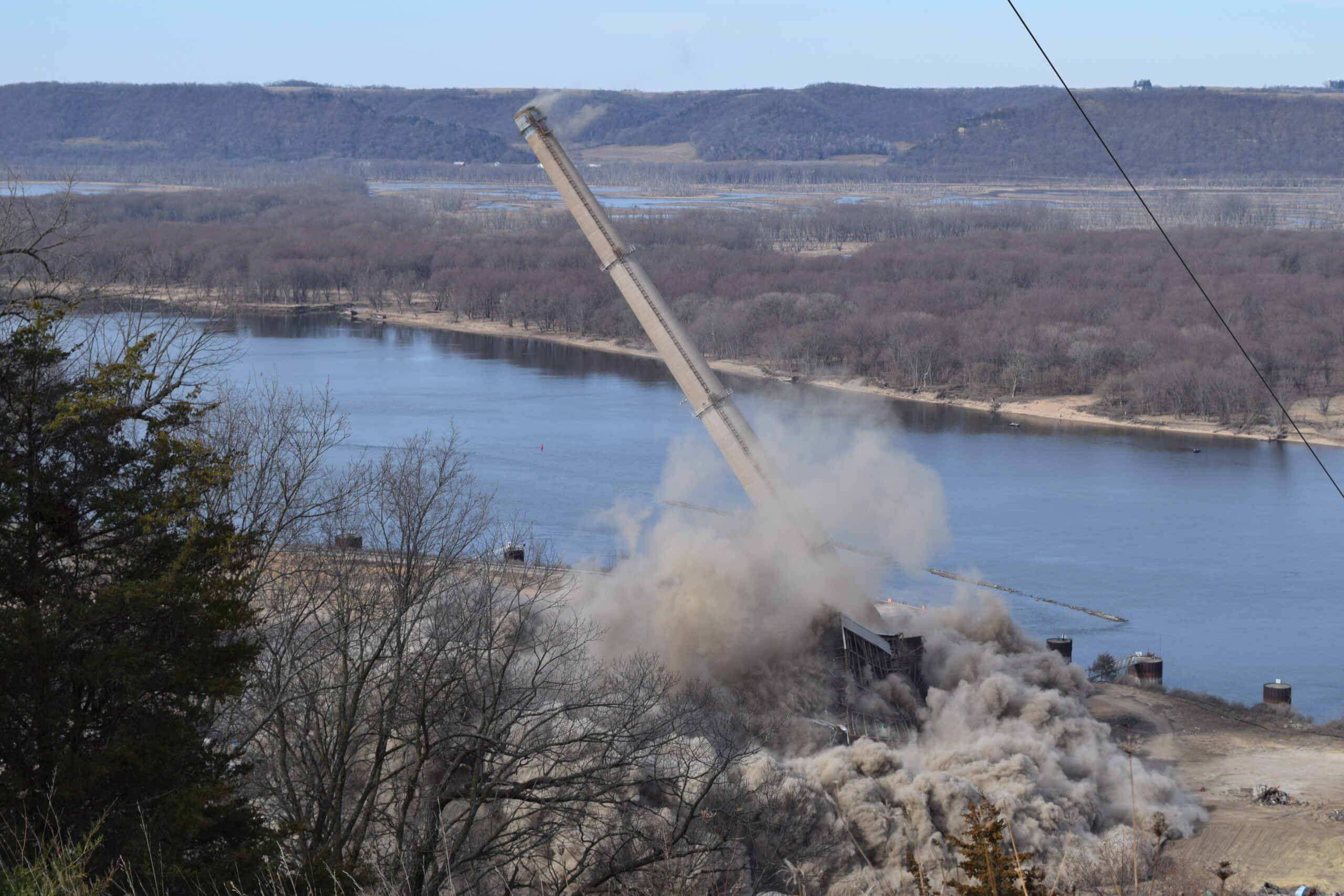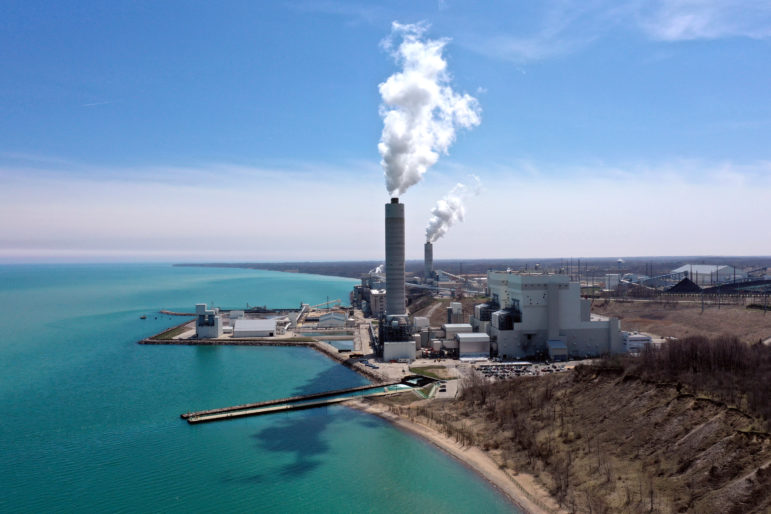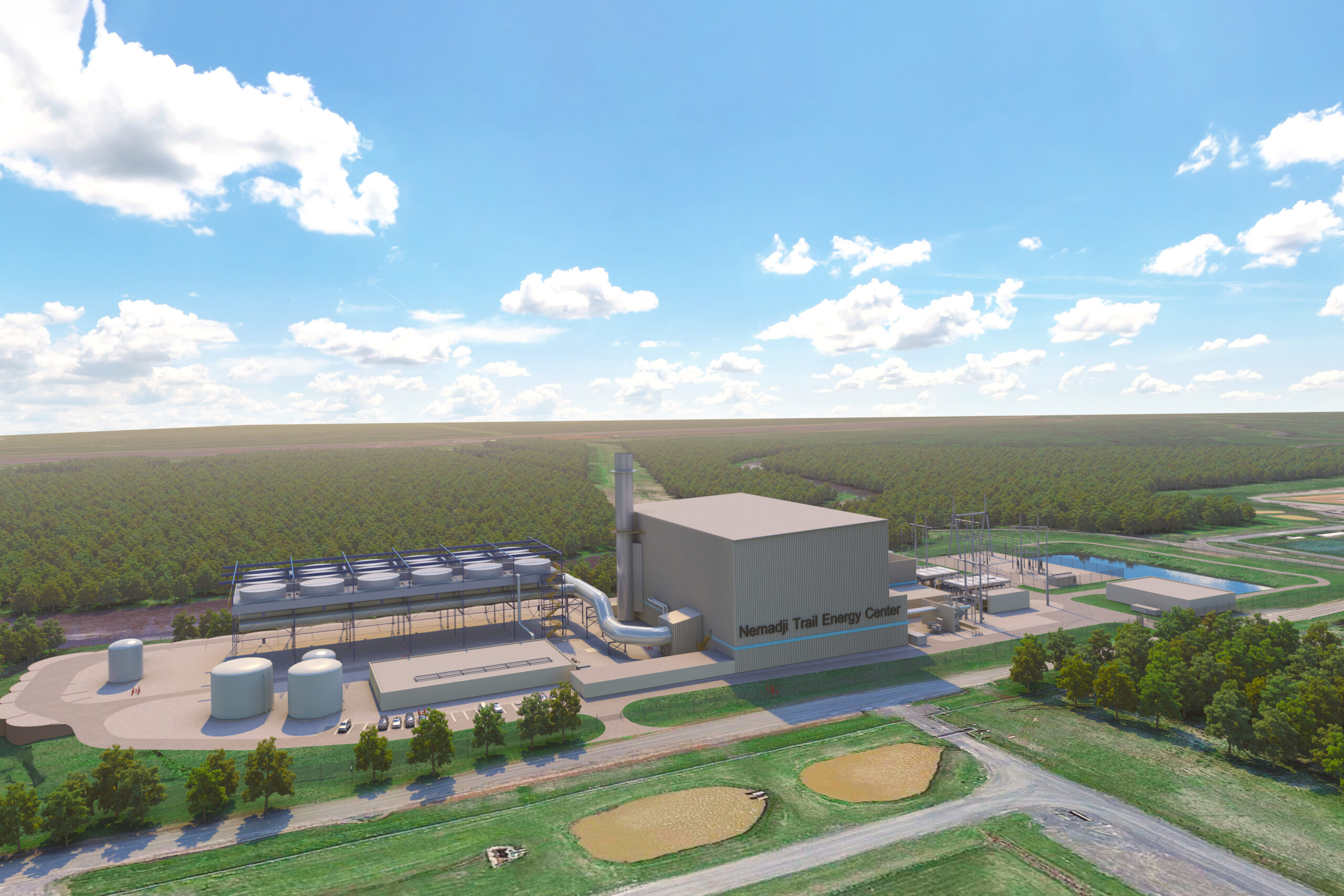Detonating around 400 pounds of explosives, the last pieces of a coal-fired power plant on the Mississippi River were demolished Tuesday morning near La Crosse.
The blasts mark Dairyland Power Cooperative’s final stage of dismantling the Genoa plant, which was decommissioned in June 2021 after 52 years of operation.
Traffic on state Highway 35 and the Mississippi River was halted just before the blast took place. Local elected officials, the cooperative’s staff and board of directors looked on in near silence from atop a nearby bluff as first the plant’s boiler, a giant steel box full of tubes, and 500-foot chimney stack tipped to one side and fell to the ground, creating an enormous cloud of dust.
Stay informed on the latest news
Sign up for WPR’s email newsletter.
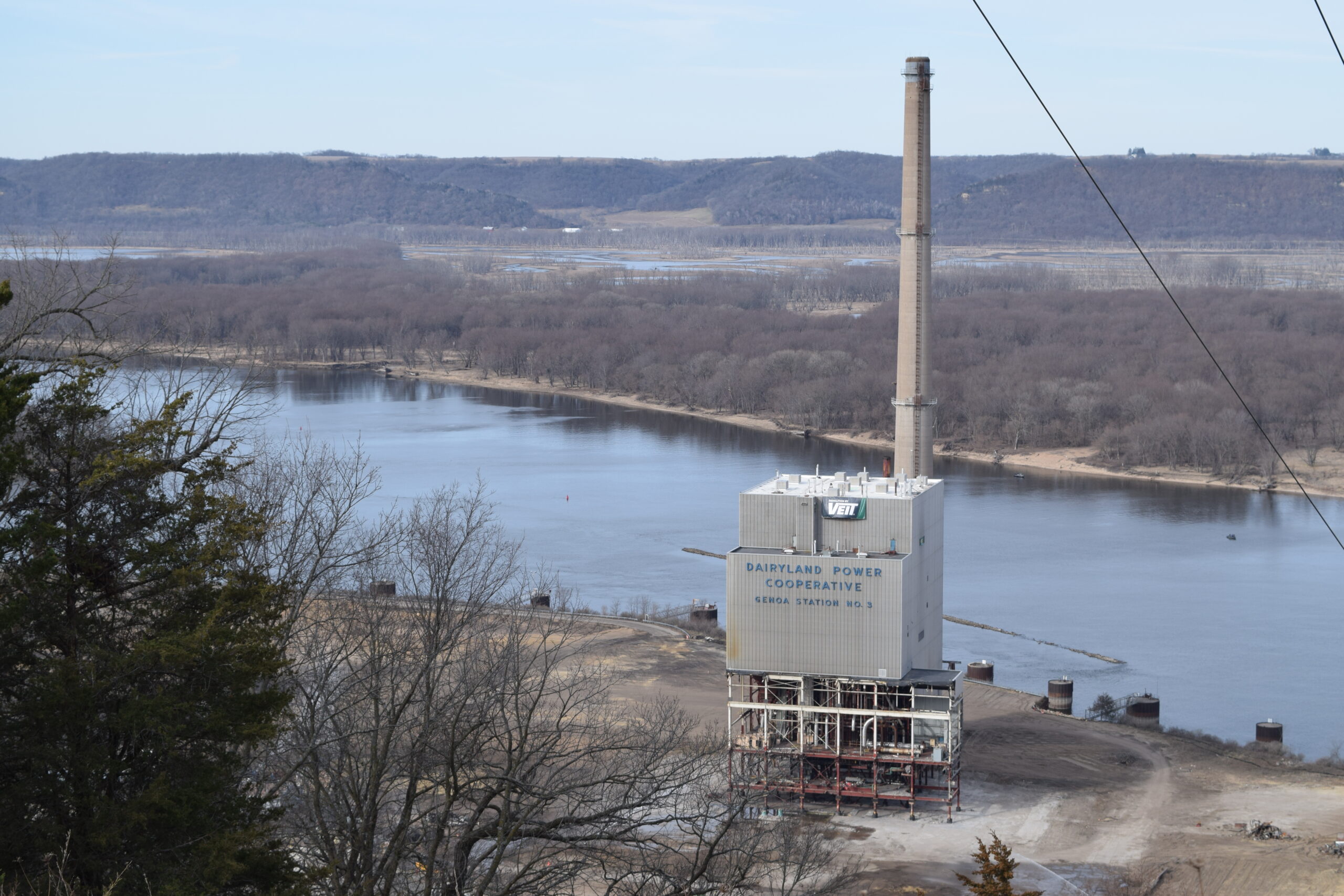
Ron Krizan, Dairyland’s director of engineering, said it took three years of work to get the site to this point. He said crews will spend the next three to four months removing debris, processing around 2,000 tons of steel each month and crushing the concrete for reuse on site.
Rick Phillips, president of the Village of Genoa, said watching the last pieces of the plant fall was sad for many people in his community. He said the plant’s stack was a visible marker for the village, along with the many lights that could even be seen across the Mississippi River.
“It’s been there my entire life,” he said. “We’ve had such good relations with Dairyland, and they’ve done a lot for the village, our fire department and the Township of Genoa. It’s a landmark, it’s gonna be missed.”
Phillips said the plant has also employed many people in the village, including his father. He said the loss of the facility will have an impact on his community’s and the township’s tax base.
It is the sixth coal plant that Dairyland Power has decommissioned over the last decade as the cooperative has transitioned away from fossil fuels.
Brent Ridge, president and CEO of Dairyland, said the cooperative does not have plans to decommission their two remaining coal-fired plants.
“Those two remaining fossil fuel coal plants, plus our (natural) gas plants, are going to be needed for the foreseeable future to support safe, reliable and affordable electricity,” he said.
Ridge said the cooperative will continue reducing carbon emissions, but the transition will likely be a decades-long process. He said utilities still need sources like fossil fuels or nuclear to maintain power when solar or wind production naturally declines.

Dairyland previously operated a nuclear power plant at the site in Genoa, and spent nuclear fuel will continue to be stored on a portion of the site. Ridge said the cooperative is still looking for the best use for the rest of the land.
“That could range from manufacturing all the way to another power generating resource, which, in this case, would probably be non-carbon emitting,” he said, adding that the cooperative is working with the community of Genoa to find the right fit for the area.
The western Wisconsin power cooperative is far from the only utility working to decommission coal-fired power plants and reduce emissions.
Wisconsin’s largest utility, WEC Energy Group, announced in October that it plans to eliminate coal as an energy source by the end of 2032. The utility’s South Oak Creek plant near Milwaukee will begin taking coal-fired units offline this year after a one-year delay. WEC also plans to stop using coal at its Weston Power Plant near Wausau in 2031.
Alliant Energy plans to shut down its Edgewater coal plant in Sheboygan in June 2025 and a Columbia County plant by mid-2026. The Madison-based utility also delayed the shutdown of these plants in 2022.
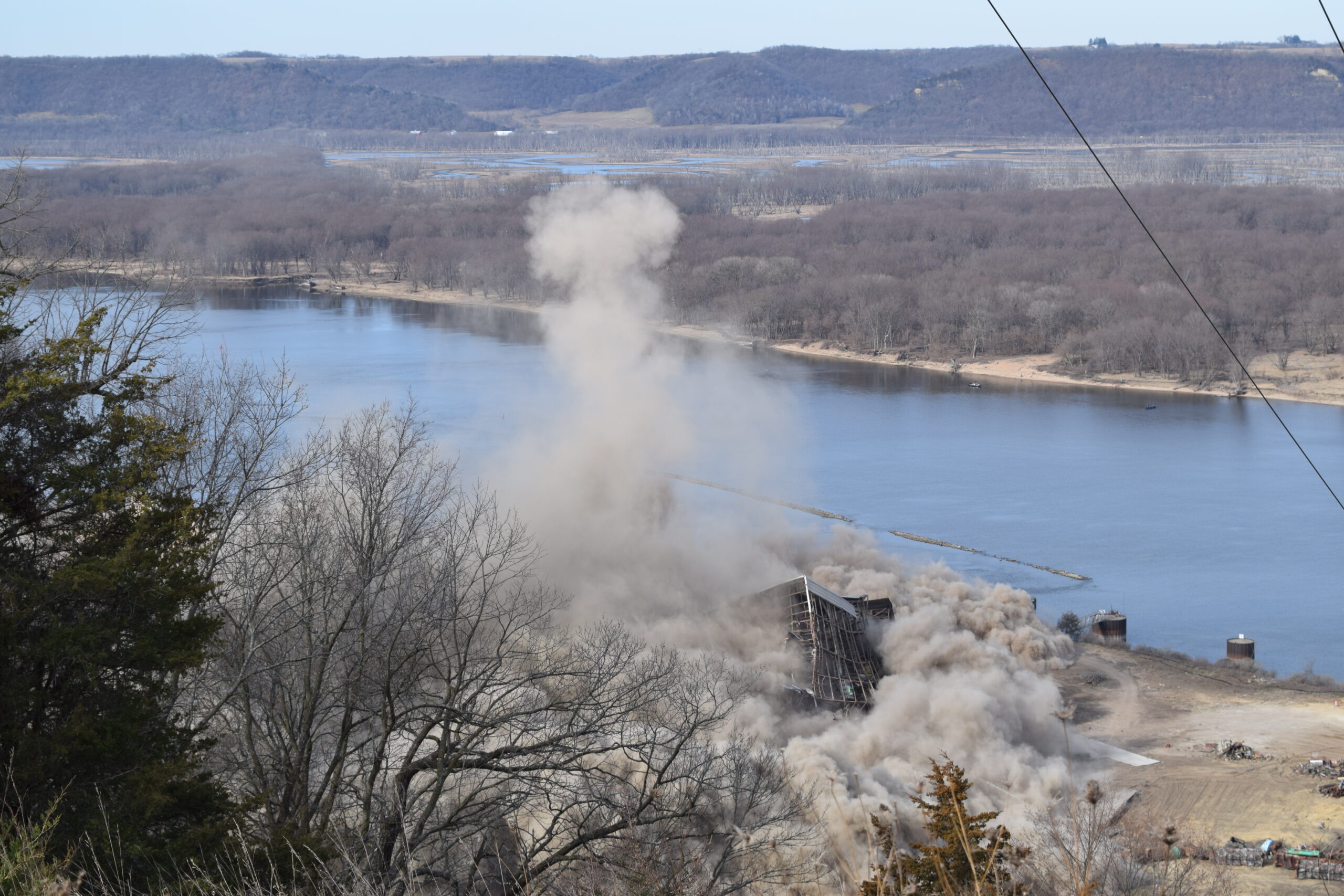
Wisconsin Public Radio, © Copyright 2025, Board of Regents of the University of Wisconsin System and Wisconsin Educational Communications Board.
